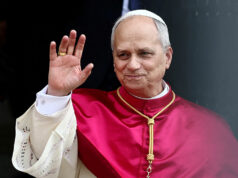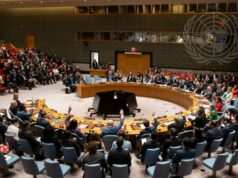House OK’s resolution on constitutional assembly
THE HOUSE of Representatives approved in plenary on Tuesday House Concurrent Resolution 9 convening the House and Senate into a constituent assembly.
A video uploaded on the House Web site showed Cebu (3rd District) Representative Gwendolyn F. Garcia of the House majority presiding over Tuesday afternoon’s plenary session that adopted the said resolution.
Anticipating Tuesday’s vote in a statement on Monday, Representative Roger Mercado, chairman of the committee on constitutional amendments said that with the approval of Resolution No. 9, all recommendations, including the PDP-LABAN draft Constitution and those reforms or amendments submitted by House members would be discussed by the different committees based on the rules on Congress as a constituent assembly.
“If we finish that today, we (then) will vote and approve the House resolution convening both houses into a constitutional assembly,” Mr. Mercado said on Monday.
He maintained the stand of the House on both chambers of Congress voting jointly.
“The Congress, upon the vote of all its members, so, both houses will be convened and upon a vote of three-fourth of all its members, meaning the House of Representatives and the Senate, then we can propose amendments to our Constitution,” Mr. Mercado said, quoting Article 17 of the Constitution.
The Senate, on the other hand, maintains that the two chambers must vote separately on this matter, and a majority senator, Panfilo M. Lacson, has filed a resolution to that effect.
Earlier on Tuesday, members of the House kicked off discussions on possible changes to the 30-year-old 1987 Constitution, with the aim of shifting to a system of federal government and allowing the president up to two terms in office.
The switch to a federal system was one of the key planks of President Rodrigo R. Duterte’s election campaign, aimed to remedy what he saw as neglect by a Manila-centric political establishment that has left provinces in perpetual poverty.
Mr. Duterte’s allies, who dominate the nearly 300-member House, want a Constitution that broadly aims to expand both legislative chambers, lengthen lawmakers’ terms, give provinces more fiscal autonomy, have a prime minister as head of government, and a separately elected president.
The tentative plan is to agree and draft the amendments late this year and hold a referendum in May 2019.
The push to change the Constitution has been a divisive issue, with critics accusing lawmakers of trying to prolong their stay in office, or of creating a way for Mr. Duterte to stay in power beyond the end of his term in 2022.
Opponents warn the process could bring a repeat of the 1970s-era of the late dictator Ferdinand E. Marcos and say they are troubled by Mr. Duterte’s stated admiration for him, and the President’s similar authoritarian traits.
The opposition says the 1987 Constitution was drafted to stop that from happening.
Mr. Duterte has made clear he has no desire to stay longer than his term and, if anything, would prefer to retire earlier.
Lawmakers have yet to decide on what federal model to adopt, Mr. Mercado said.
Also on Monday, Senator Juan Miguel F. Zubiri bared a planned schedule for the Senate to act on the proposed Bangsamoro Basic Law (BBL), the premise for establishing a new autonomous region in Mindanao on the watch of the Moro Islamic Liberation Front (MILF).
Mr. Zubiri said: “We will also be going to have a hearing this Jan. 23 which is on Tuesday where in all Cabinet officials, as well as the BTC (Bangsamoro Transition Commission) officials and members of the MILF will be here in the Senate. After which, on the 25th, we will have a hearing at Cotabato City and 26 we will be in Marawi and we will also have succeeding hearings in (the) Basulta (Basilan, Sulu, Tawi-Tawi) area. So we would like to assure the President and the Filipino people that we are prioritizing the BBL.
“I like to finish the discussion on 2nd and 3rd reading on (the) second week of March before the session break,” the senator added. “We will have the committee report ready by third week of February….After which I will bring the committee report in plenary and we will have three weeks to pass the measure.”
For his part, Senate President Aquilino Martin L. Pimentel III clarified: “BBL does not need Cha-cha. It is easier to achieve. It is common sense….In the context of the 1987 Constitution, so pag-isipan mong dalawa, anong mas (think about the two, which is more) achievable, BBL o charter change? Mas madali ang BBL (BBL is easier).” — main report by Reuters



